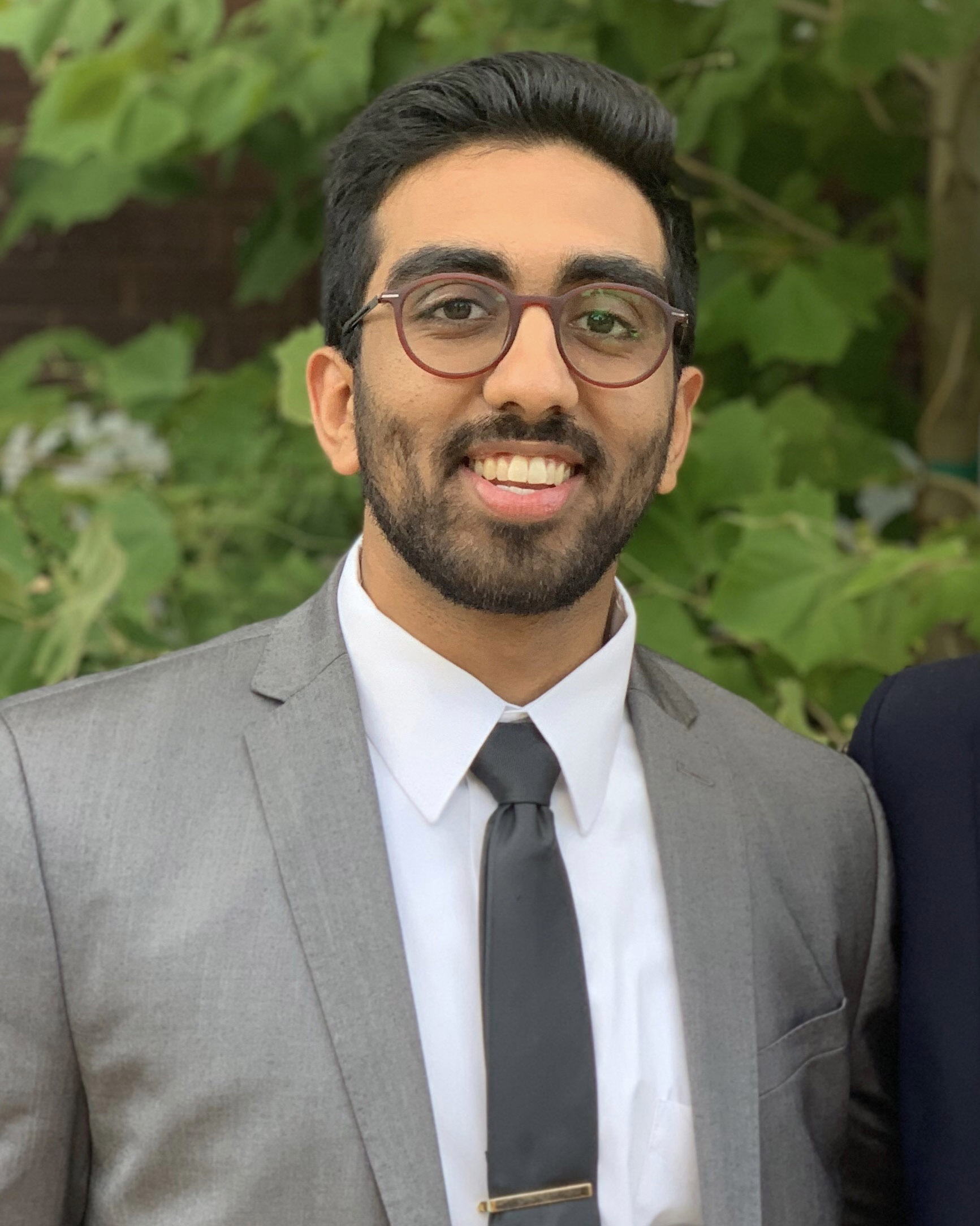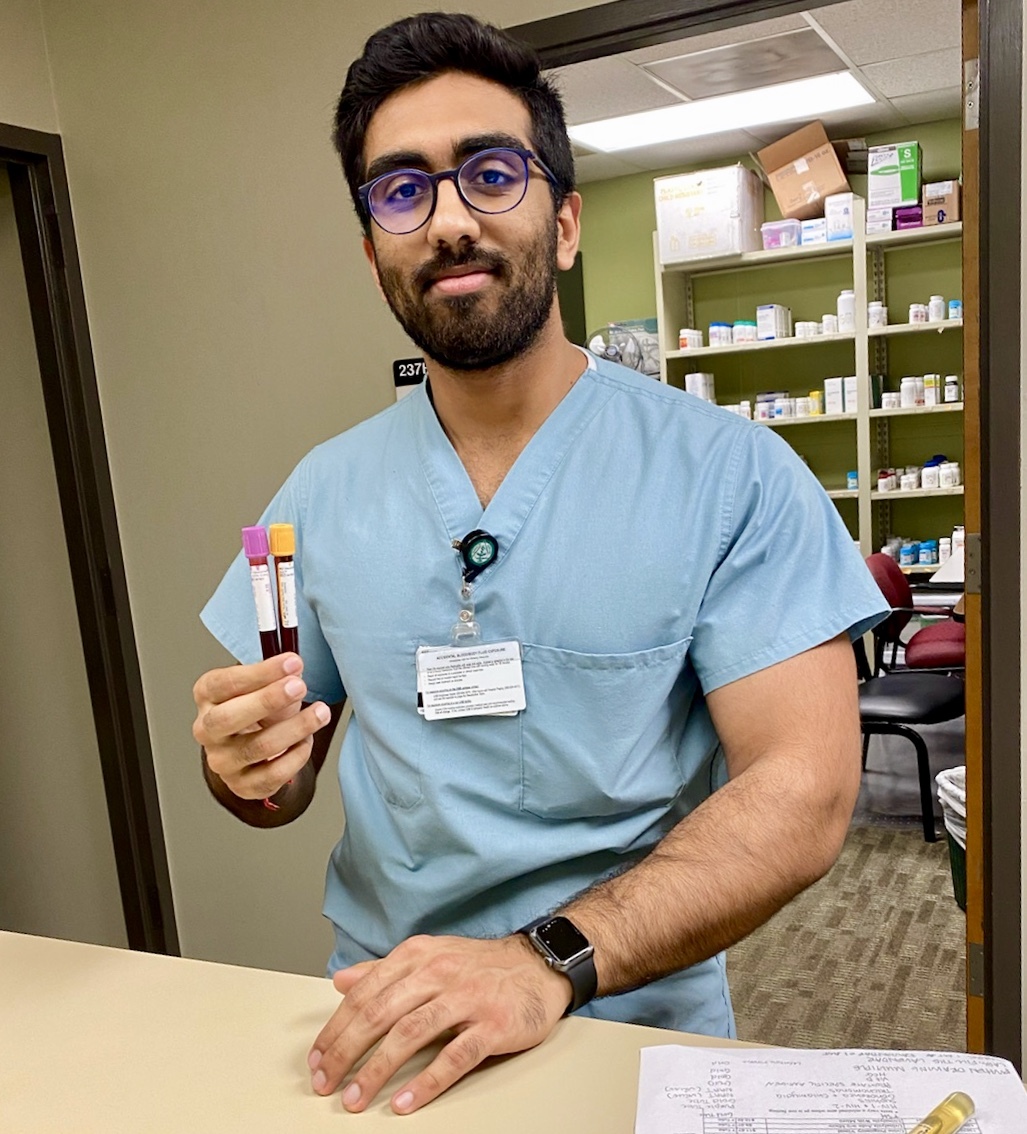 April is National Volunteer Month—an annual celebration honoring the service work and outreach of individuals and groups. Earlier this month, we kicked off a long-term series of stories highlighting those at the School of Medicine who are committed to giving back. Willingness to serve is a key characteristic of our enterprise.
April is National Volunteer Month—an annual celebration honoring the service work and outreach of individuals and groups. Earlier this month, we kicked off a long-term series of stories highlighting those at the School of Medicine who are committed to giving back. Willingness to serve is a key characteristic of our enterprise.
This week, the School of Medicine communications staff sat down with Ankit Bansal, rising MS3, to learn about his service work with Equal Access Birmingham through one of the most tumultuous years in our lifetime.
Providing care for all
In 2020, Ankit Bansal served as an executive officer and the Wednesday clinic director for Equal Access Birmingham—a student-run, free clinic that provides continuity of care to the medically underserved.
EAB serves uninsured and underinsured individuals in the Greater Birmingham Metro Area. The student initiative helps improve the health and health outcomes of vulnerable populations in Birmingham—working to bridge the gap of health disparities in the southeast.
Since 2012, EAB has organized and managed a weekly student-run free clinic for the homeless and underserved. Additionally, the EAB hosts monthly community health screenings, provides health education, and more.
During the uncertainty and distress of the pandemic, Bansal and four other executive officers led EAB through two major changes.
Pivoting during challenging times
The first change at EAB included switching their electronic medical record (EMR) from a free software to Cerner, the same EMR as the UAB Health System. Led by the student leadership team, this change allowed for more well-rounded approaches to care. A large undertaking, the five student officers were highly successful at implementing Cerner at EAB.
Bansal says, “The EMR transition is a monumental leap forward for the EAB, as it directly connects us and our patients with the rest of the UAB Health System. Now, when we send patients to the Emergency Room, Cooper Green Mercy Health Services, or any other clinics at UAB, they have access to our patients’ medical history and notes, and vice versa.”
Bansal explains that this change is a radical leap forward for patient care. “It allows for a drastically-improved continuity of care with tangible benefits to our patients that I have seen firsthand,” he says.
The second major change in 2020 was shutting down in-person clinic operations due to COVID-19 and switching to a telehealth model—another sizeable task that EAB student volunteers completed with success.
You keep what you give away
 On his volunteer work, Bansal explains that the entire process has been a great learning experience. While helping others out of service and compassion, Bansal says that he has walked away from the experiences in 2020 gaining much knowledge about the ins-and-outs of our current health care system—especially the model at UAB.
On his volunteer work, Bansal explains that the entire process has been a great learning experience. While helping others out of service and compassion, Bansal says that he has walked away from the experiences in 2020 gaining much knowledge about the ins-and-outs of our current health care system—especially the model at UAB.
“Working with the UAB Health System to implement the EMR in our clinic gave me a much better understanding of the EMR and the structure of UAB’s Health System. I also got plenty of practice working with Cerner, which has (fingers crossed) prepared me exceptionally well for my third year. Most importantly, I got to work with and learn from some amazing people who are exceedingly dedicated to improving patient experience and outcomes.”
Bansal now serves in an advisory role on EAB’s Long Term Planning Committee. After each of the five executive officers’ term ends, they each join the Long Term Planning Committee which consists of other past officers.
Fittingly, Bansal is most interested in pursuing health disparities in his future career.
“My experience with EAB and the EMR transition has given me a better appreciation for the system as well as a better understanding of the gaps that exist. I truly believe that you cannot improve a system if you do not first take the time to understand how it works, and this experience has certainly taught me a lot about how things currently work.”
Tell us your volunteer story
If you have a department, program, or individual testimony about volunteering, reach out to Mary Ashley Canevaro for your story to be considered. At the School of Medicine, we want to share your experiences on outreach, community engagement, and other forms of volunteerism.